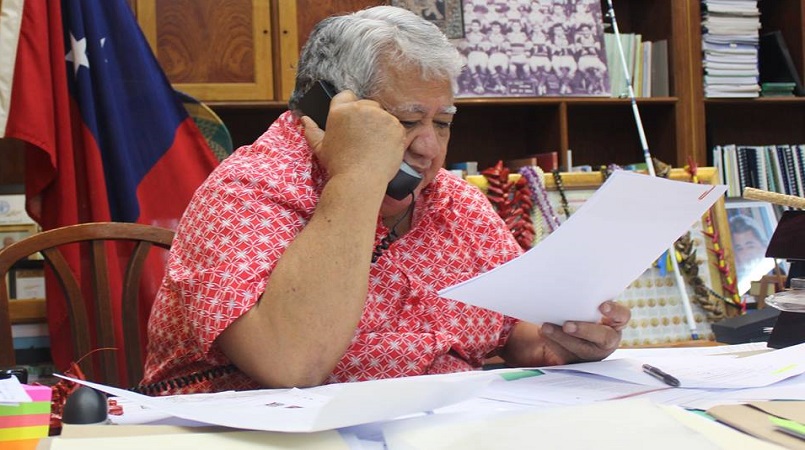
The Government says it has noted calls to increase Samoa’s minimum wage currently at $2:30 sene an hour.
But with the same token, Government is not oblivious to the fact that any rise in the hourly wage is primarily up to the private sector, said Prime Minister Tuilaepa Lupesoliai Sailele Malielegaoi.
“There is a lot more to this than meets the eye,” elaborated the Prime Minister.
“Any raise in the minimum wage is dependent on private sector’s ability to absorb it among other related issues. In making such a recommendation, the Ministry of Commerce, Industry and Labor (MCIL) take into account what government can afford, and especially the private sector.”
Tuilaepa said MCIL also has to consider variables like inflation rates and its effect on disposable incomes.
“The key word here is affordability.”
For instance, said Tuilaepa, the mandated federal minimum wage imposed by the United States Congress in American Samoa some years ago that instantly led to the closing down of the Van Camp fish processing plant there.
“And when the issue resurfaced again the territories tuna processing industry was at cross roads and threatened to shut down operations in the territory because the new wages dictated by Uncle Samoa would lead to financial chaos for them. This is one of the issues that my administration is mindful of whenever there is talk of wages and benefits,” Tuilaepa said.
The Prime Minister also noted that the private sector could not afford the last hourly wage increased approved in 2014 but its implementation was delayed.
“The increase was originally approved for implementation in May 2014,” recalls Tuilaepa.
“But it was delayed to January 2015 in response to the request by the private sector employers for a grace period for them to embrace the increase to get their financial houses in order to minimize any drastic impact such as lay-offs and redundancies.
“And government obliged. That is how my administration operates based on merits, facts and numbers and not politically infested promises. We all want to raise minimum wage but it has to be a measured increase and at a level the private sector can absorb,” he added.
Tuilaepa said there is no point in raising minimum wage and immediately results in businesses closing down.
“Then all we will get is looking at a bunch of numbers while there are no jobs.”
Back in 2014, MCIL’s Chief Executive Officer Pulotu Lyndon Chu Ling recalls the majority of the private sector had reservations to increase the minimum wage.
And after reviewing the pros and cons, a 30 sene per hour increase was agreed upon and implemented.
“For the record, none of the government workers are being paid under the minimum wage requirement by law. And latest survey conducted by MCIL found that about 700 employees representing 6% of Samoa’s working force of 12,000 are paid minimum wages,” said Pulotu.
To that effect, MCIL will be conducting a follow-up survey to update the data and revisit a possible increase to the current minimum wage.
Pulotu explained the survey will include public consultations and negotiations with the Business Sector.
